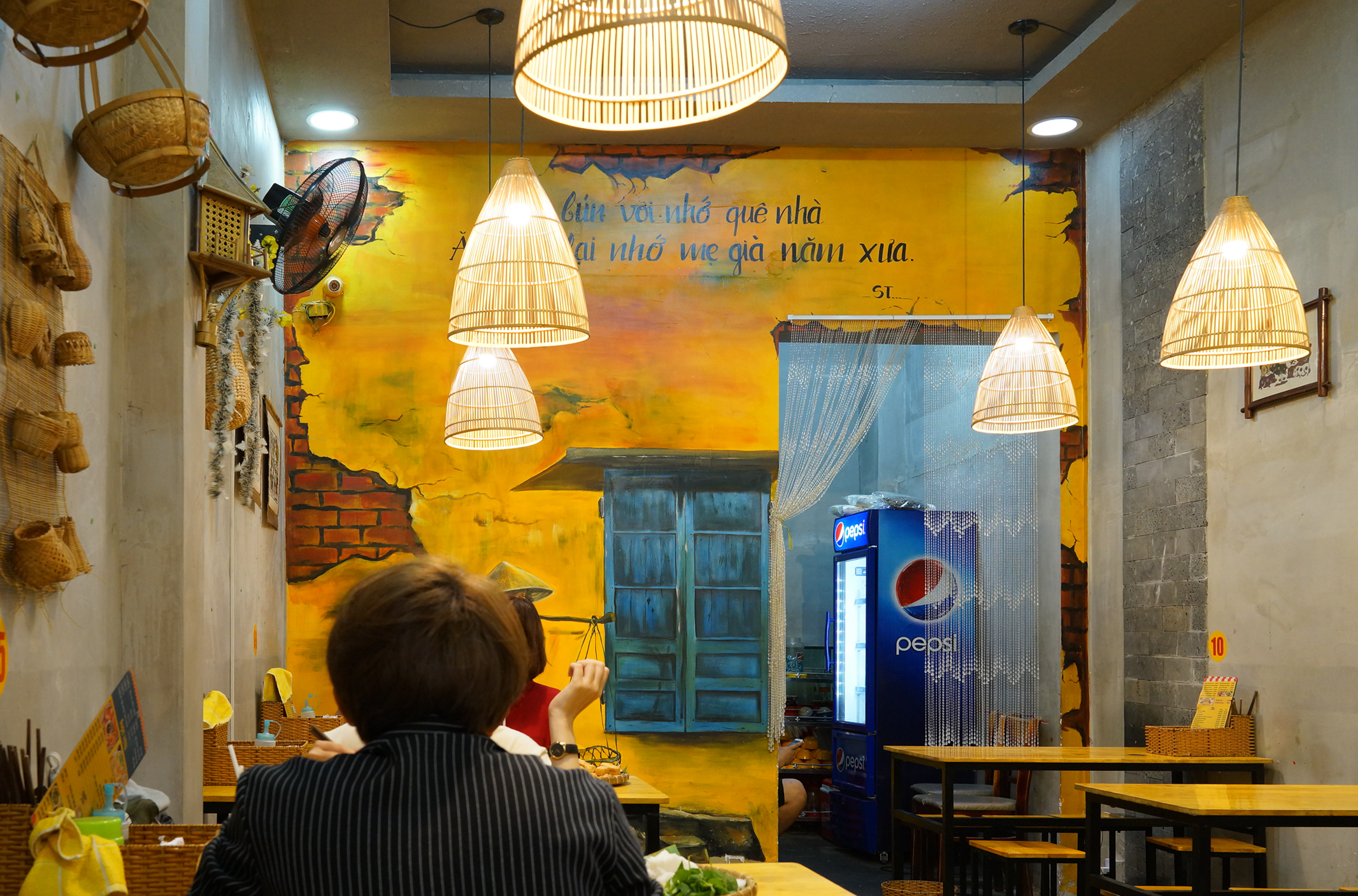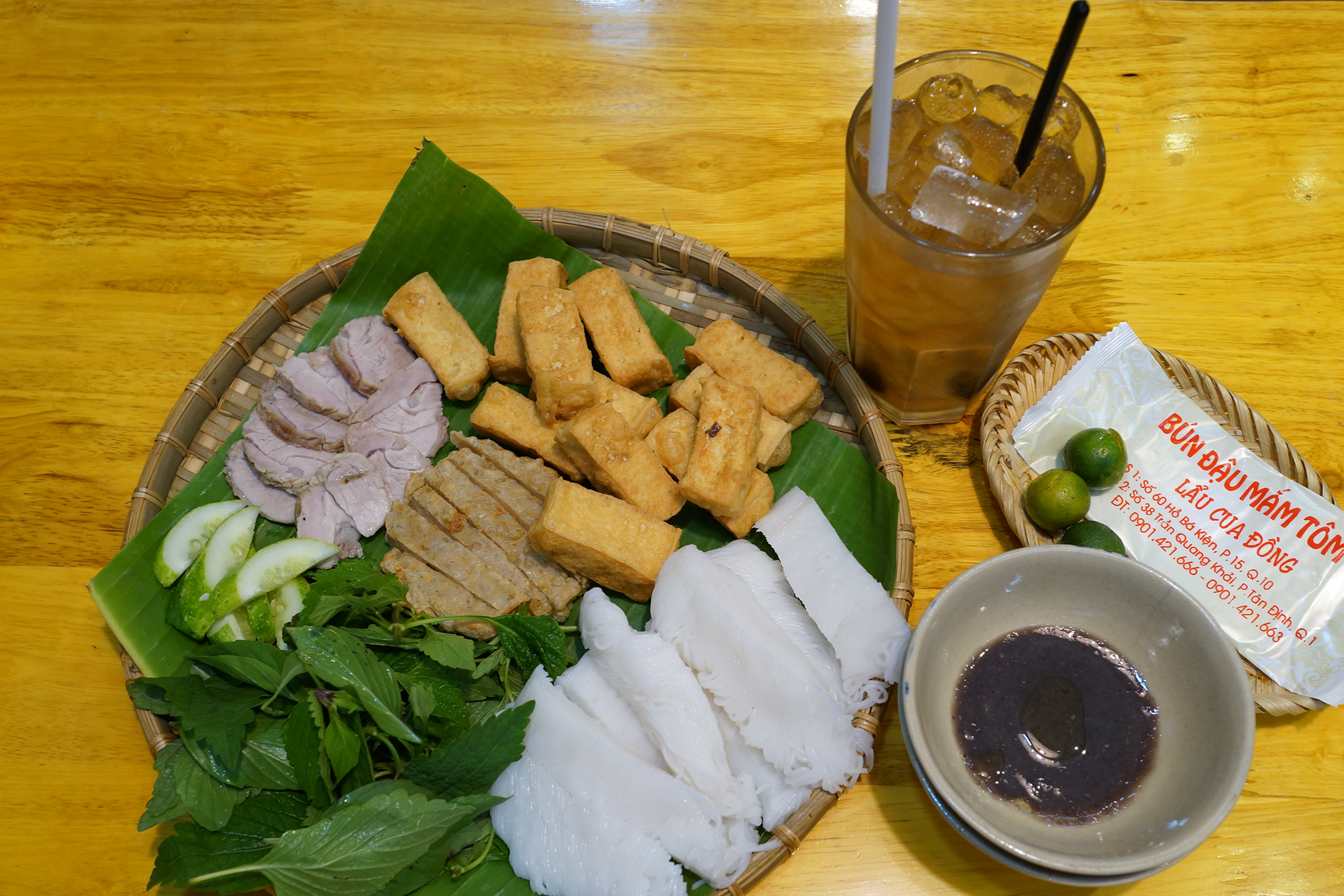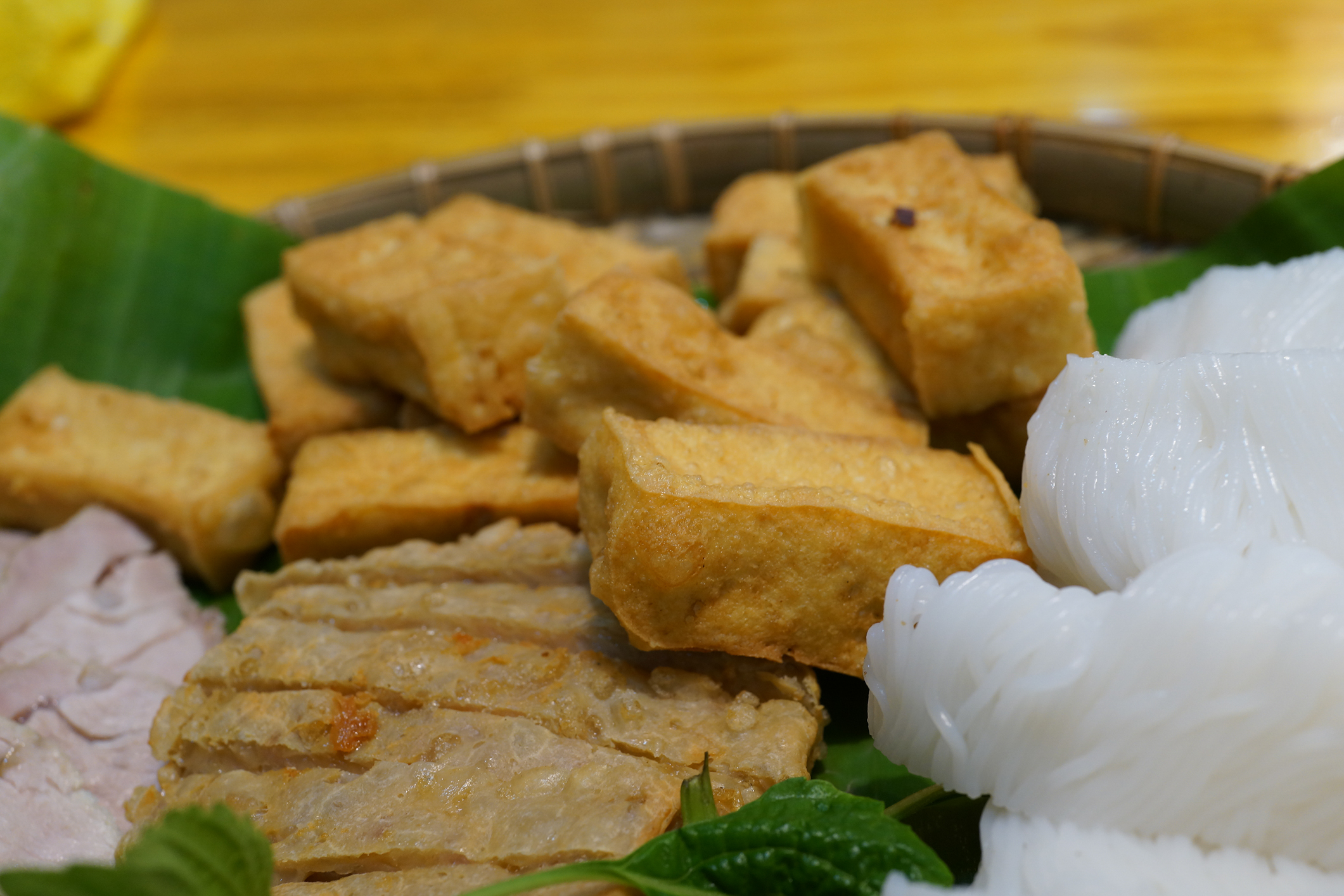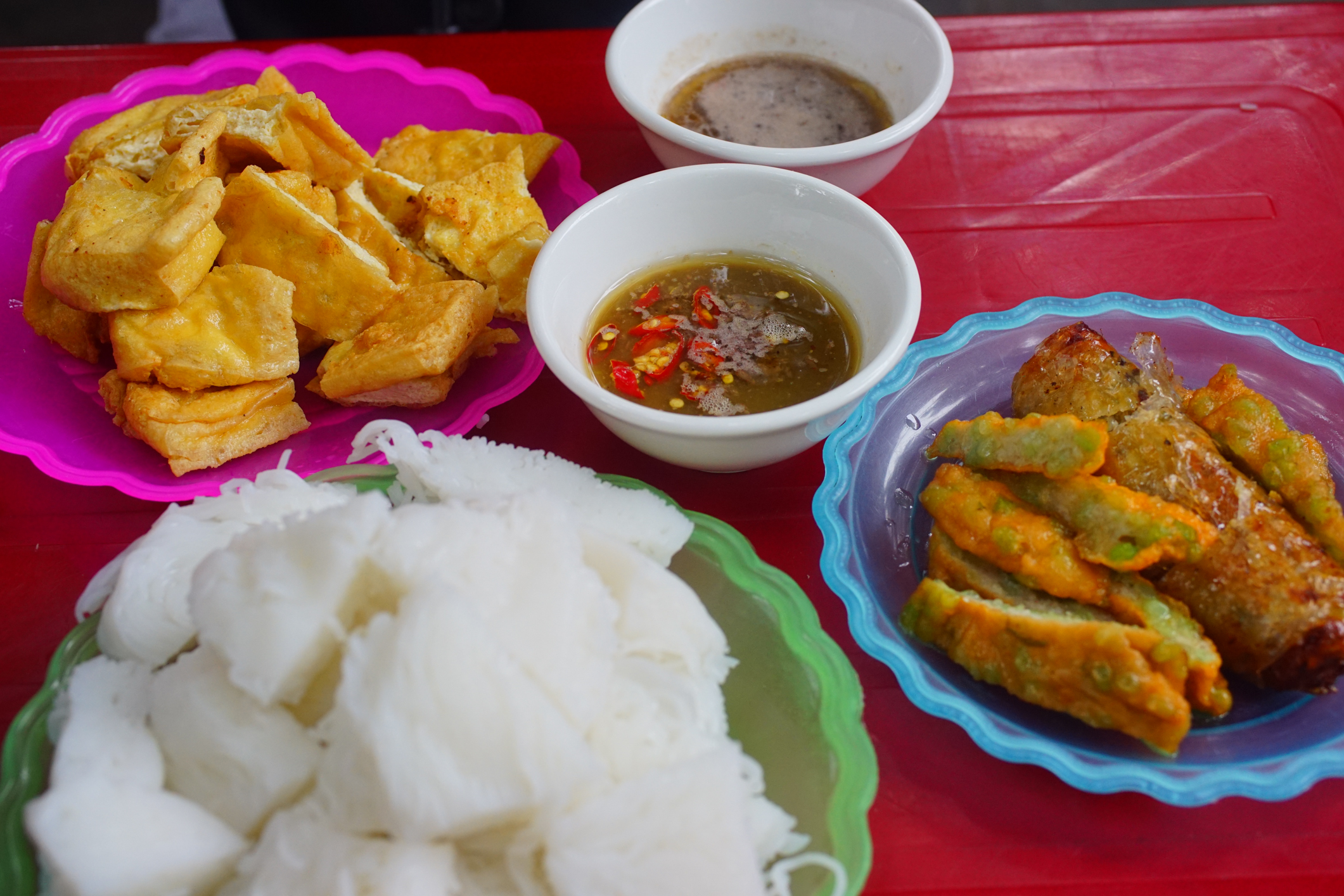Bun dau mam tom, a dish including a stinky sauce and tofu, is a definite must for daredevils undisturbed by the idea of pungent shrimp paste.
As the name suggests, the dish includes bun (rice vermicelli, usually fresh and served without soup), dau (tofu, usually in crispy brown fried cubes), and mam tom (a smelly shrimp paste that can knock out unprepared epicureans on first contact).
What sets this dish apart from other foods with the same vermicelli content, firstly, is the type of noodle used.
Unlike other soup dishes, where the noodles are separated, the noodle used in bun dau mam tom is served in chunks.
It is known as bun la, a kind of noodle pressed into patches and chopped into cubes measuring about two fingers long, giving them a hard, firm texture.
 |
| 'Bun dau mam tom' restaurants in Saigon tend to have a northern-style decor. Photo: Tien Bui |
These noodle cubes also make it easier to dip them in shrimp paste, which tends to drip on tables or clothes if the stripes are not well connected.
The other ingredients for bun dau mam tom, however, are not restricted to tofu only. Eaters can choose from com (a kind of green rice pork nugget), cha gio (spring rolls), thit heo (steamed pork), or long (steamed pig offal).
Bun dau mam tom is served with cucumber slices and an assortment of herbs.
The dish is usually served on a met, a round-shaped bamboo-made flat container, typically used to present food in the north.
The key to its success, however, is the magical shrimp paste – the very soul of the delicacy.
The paste is often served in a palm-sized bowl filled about halfway. Diners are given a pot of sugar and a basket of kumquats for extra seasoning.
For each bowl of shrimp paste, two kumquats and three teaspoonfuls of sugar should do. Whisking the mixture afterward combines the different scents into a wholesome, pungent dip.
 |
| A serving of ‘bun dau mam tom’ offered at VND 60,000 ($2.5) at Bun Dau 60, 38 Tran Quang Khai Street, District 1 on April 9, 2018. Photo: Tien Bui |
Where to find it?
Most major cities in Vietnam have restaurants specializing in the dish.
In the capital city of Hanoi, bun dau mam tom is a mundane daily energy boost for the average laborer and low-income inhabitants.
Alleyway peddlers set up compact kitchens in narrow corners where they attract packs of eaters who come, eat, and rush back to work.
The pleasure of picking each noodle cube, dipping it in the aromatic shrimp paste, and feeling its effect on every single taste bud on a chilly day in Hanoi is a sensation most locals would agree cannot be beaten.
Yet, those same eaters, whatever their size, still need to deal with the sometimes uncomfortable feeling of squeezing onto a tiny plastic stool while pulling their legs together so as to save space for others.
To fill one’s stomach, a dish of bun dau mam tom should cost roughly VND15,000 (yes, less than one dollar!) for a basic tofu-only version.
One typical place is Bun Dau Viet at 27/29 Hang Khay, Hoan Kiem District, in the Old Quarter, where prices are VND15,000-33,000 ($0.5-1.5) per plate.
First timers here will probably feel claustrophobic in the small eatery, but will quickly forget their discomfort once the food hits their mouth.
In Saigon, the bun dau mam tom may taste the same as its northern counterpart, but the eateries are a whole different ball game.
 |
| 'Bun dau mam tom' often comes with crispy fried tofu. Photo: Tien Bui |
Given the burning heat in the city, it can be absolutely disastrous to peddle around selling noodles with shrimp paste as the paste will quickly spoil.
For this reason, restaurateurs in Saigon serve the dish in spacious indoor areas with finely decorated and neatly arranged tables and chairs.
The last few years has seen a noticeable rise in the number of bun dau mam tom restaurants in the city, some of which are listed below.
Those residing downtown can drop by Bun Dau Co Khan at 102/26 Cong Quynh Street, District 1. A hotspot for the dish since it opened in 2013.
Its owner is Trang Khan, a well-known model and actress in Vietnam. As a northerner, she has grown making delicious shrimp pastes.
Her eatery attracts the locals with its combination of hefty servings and humorous quips for its owner. If her restaurant ever went under its clear she would have a shot at stand-up comedy.
Prices at Bun Dau Co Khan range from VND50,000-110,000 ($2-5).
Heading north from downtown, shrimp paste cravers can stop at Bun Dau 60 at 38 Tran Quang Khai Street, District 1. The spacious restaurant is a little more upscale, with a peculiar northern-style decor.
Like us on Facebook or follow us on Twitter to get the latest news about Vietnam!


















































